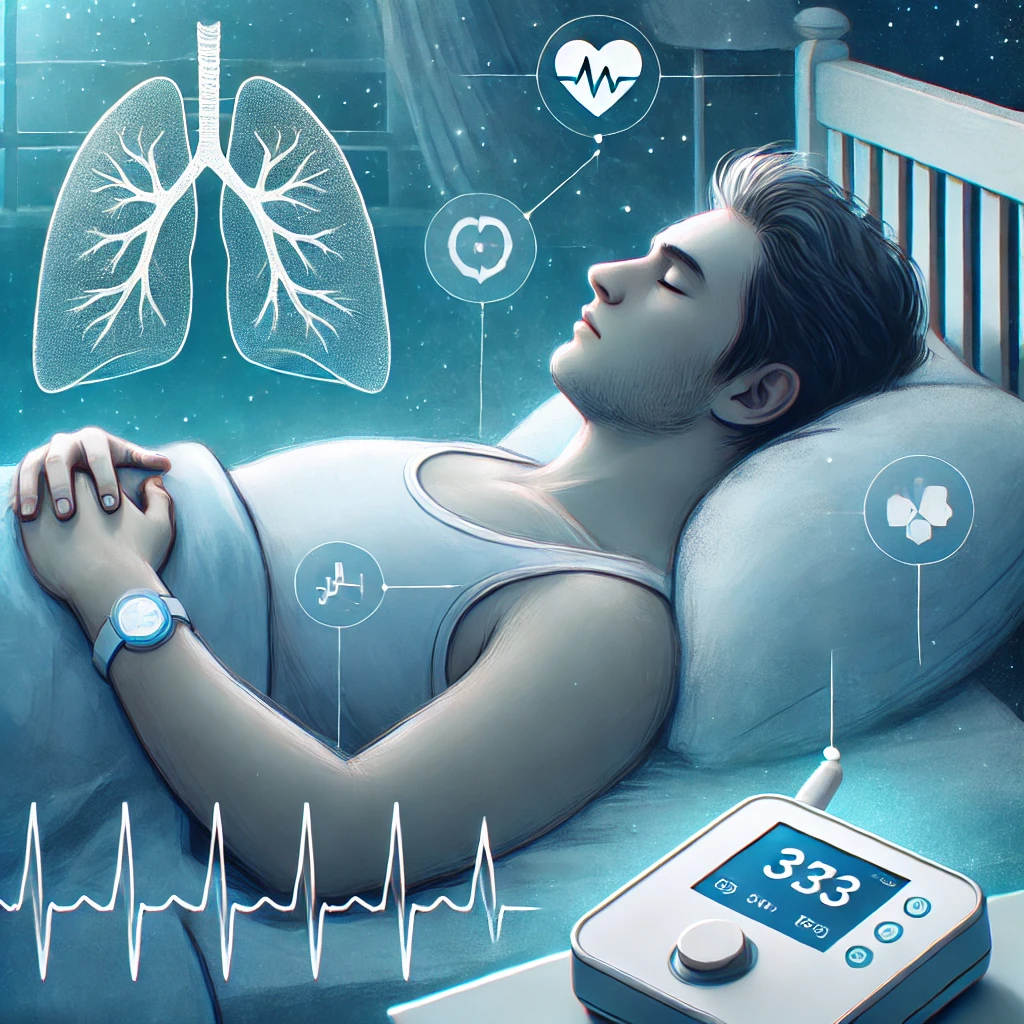Sleep apnea is a common yet often overlooked sleep disorder that affects millions of people worldwide. It disrupts breathing during sleep, leading to fatigue, daytime drowsiness, and other serious health complications if left untreated. Fortunately, advancements in technology have made it possible to conduct a sleep apnea test at home, allowing individuals to diagnose their condition without the need for overnight stays at medical facilities.
What is Sleep Apnea?
Sleep apnea is a condition where a person’s breathing repeatedly stops and starts during sleep. There are three main types:
Obstructive Sleep Apnea (OSA): The most common form caused by throat muscles relaxing excessively.
Central Sleep Apnea (CSA): Occurs when the brain fails to send the proper signals to the muscles that control breathing.
Complex Sleep Apnea Syndrome: A combination of both OSA and CSA.
People suffering from sleep apnea may experience symptoms such as loud snoring, gasping for air during sleep, excessive daytime sleepiness, difficulty concentrating, and headaches upon waking. If left untreated, sleep apnea can result in serious long-term consequences, affecting not only the quality of sleep but also overall health and well-being.
Why Is Sleep Apnea a Serious Health Concern?
Untreated sleep apnea can lead to severe health risks, including:
High blood pressure
Heart disease
Stroke
Type 2 diabetes
Depression and anxiety
Memory problems
Increased risk of workplace or vehicular accidents due to drowsiness
Since sleep apnea interrupts proper oxygen supply to the brain and other organs, prolonged episodes can result in cognitive impairment and increase the risk of other chronic conditions. Due to its significant impact on overall well-being, early diagnosis and treatment are crucial.
Benefits of a Sleep Apnea Test at Home
Traditionally, diagnosing sleep apnea required an overnight stay at a sleep clinic. However, home sleep apnea tests offer a more convenient and accessible solution. Benefits of home testing include:
Comfort: Testing is conducted in your own bedroom, leading to more natural sleep patterns.
Convenience: No need to spend the night at a medical facility.
Cost-Effectiveness: Home tests are generally more affordable than in-lab sleep studies.
Efficiency: Results can be processed quickly, allowing for faster diagnosis and treatment initiation.
Accessibility: Home sleep tests are widely available and can be easily requested by individuals experiencing symptoms of sleep apnea.
How a Home Sleep Apnea Test Works
A home sleep apnea test involves using a portable monitoring device that records vital information such as:
Breathing patterns
Oxygen levels
Heart rate
Body movements
Once the test is complete, the data is analyzed by a sleep specialist, who then provides a diagnosis and recommends further steps if necessary. For those experiencing sleep disruptions or suspecting sleep apnea, undergoing a home test can be the first step toward better health.
Treatment Options for Sleep Apnea
Once diagnosed, treatment options for sleep apnea vary based on severity and type. Common treatments include:
Continuous Positive Airway Pressure (CPAP): A machine that delivers steady air pressure to keep airways open.
Oral Appliances: Custom-fitted devices that help keep the airway open by repositioning the jaw and tongue.
Lifestyle Modifications: Weight loss, reduced alcohol consumption, and side sleeping can help manage mild cases.
Surgery: In severe cases, surgical interventions may be recommended to remove obstructions or reposition airway structures.
Positional Therapy: Encouraging individuals to sleep in specific positions to reduce airway blockages.
Medication: In some cases, medications to improve nasal congestion or stimulate breathing may be prescribed.
When to Seek Professional Help
If you or a loved one experiences persistent snoring, daytime fatigue, or breathing interruptions during sleep, consulting a specialist is essential. Early detection and intervention can prevent complications and improve quality of life. To schedule a consultation with an expert, visit Interstate Pulmonary’s contact page.
Lifestyle Changes to Improve Sleep Apnea
While medical treatment is necessary for many cases of sleep apnea, certain lifestyle adjustments can help manage symptoms effectively:
Maintaining a Healthy Weight: Obesity is a significant risk factor for sleep apnea. Losing excess weight can reduce airway obstruction and improve breathing.
Regular Exercise: Engaging in physical activity strengthens respiratory muscles and enhances overall health.
Avoiding Alcohol and Sedatives: These substances relax throat muscles, making airway obstruction more likely.
Sleeping on Your Side: Sleeping in a lateral position prevents the airway from collapsing compared to sleeping on your back.
Establishing a Consistent Sleep Routine: Going to bed and waking up at the same time daily can improve sleep quality.
Using a Humidifier: Dry air can worsen sleep apnea symptoms, so keeping air moist may help reduce discomfort.
Conclusion
Sleep apnea is a serious condition that affects both health and daily life. With the availability of sleep apnea test at home, diagnosing and managing this disorder has never been more convenient. By understanding its symptoms, risks, and treatment options, individuals can take proactive steps toward better sleep and overall wellness. If you suspect you may have sleep apnea, consider reaching out to a specialist today for expert guidance and care.
